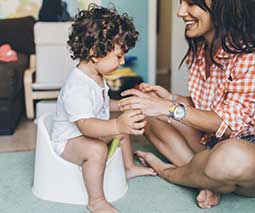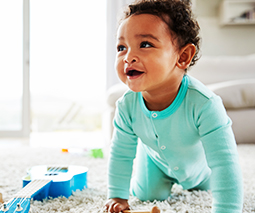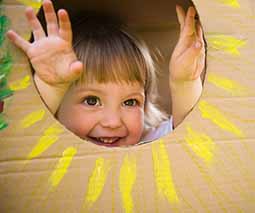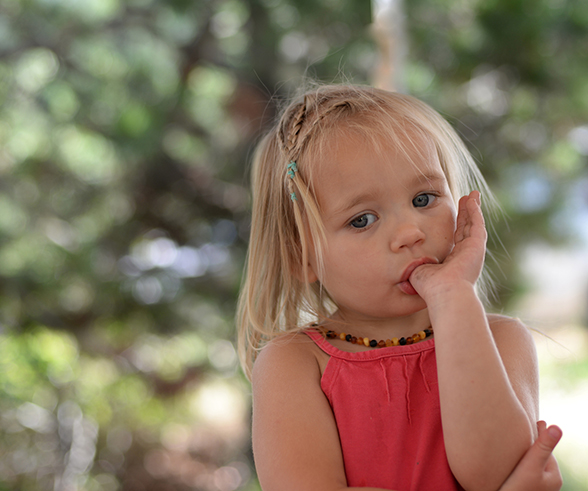What does it mean when your child has an imaginary friend?

While having an imaginary friend was once believed to be cause for concern, these days, it’s considered an important part of a child’s play.
Both my daughters had imaginary friends. And not just one. They had a few each. They were all children, each with their own name and they were very much a part of our daily life. Both girls were aware that these friends were not real, but for them, their interactions felt extremely life-like. I was never worried; in fact, we would often discuss the many friends and what they were up to. Until, for each girl, in turn, they all disappeared as quickly as they arrived.
Is it normal?
It may be unnerving when your child first tells you of their new imaginary friend, but according to clinical psychologist, Lisa Ford, it’s a very common occurrence. “We know that about two-thirds of children will invent an imaginary friend at some point in their development,” she told ABC Radio. “We know that for some children, it’s quite a short experience and for other children, the friend can linger for many years.”
What does it mean?
According to Lisa, children with imaginary friends tend to be less shy and have better perspective-taking skills, that is, they are better able to put themselves in someone else’s shoes, and in some cases, have better language skills.
“It’s a great outlet for children to really explore their creativity and it’s a really safe way for them to do it as well because they’re in charge,” she told ABC Radio. “And they’re in control of this character and this world and they’re experimenting and exploring in a really safe and lovely way.”
Lisa also says that having an imagination and exploring role play is a vital part of play, and for some children, this takes on the form of imaginary friends. For others, it might not, and that’s okay too.
What do they look like?
While my girls’ imaginary friends all took the form of other children, they can be anything from animals to fantasy creatures. Whatever they might be, for children, they’re incredibly vivid. According to Eileen Kennedy-Moore, clinical psychologist based in Princeton, NJ, children can describe exactly what imaginary friends look like and how they behave. “Many children even offer details about hearing or touching their invisible friends,” Eileen reported in Psychology Today. “Invisible friends can sometimes be a part of the life of a child—and a family—for years.”
How should parents react?
The experts say that if your child has an imaginary friend, there’s nothing to worry about. In fact, you should relax and enjoy what is a wonderful part of their childhood. My daughters’ imaginary friends have now become a fond memory for them – and also for us as parents.
Sometimes children blame imaginary friends for their own bad behaviour, and according to Eileen, it’s fine to intervene at this point. “Without harshly challenging the existence of the friend, you can say things like, “I don’t care who made this mess. You need to wipe it up,” she says in Psychology Today. “On the other hand, if it’s not too much trouble, go ahead and play along. Set an extra place at the table for the imaginary friend, if your child asks you to do so, but be careful not to take over. An imaginary friend is a unique and magical expression of your child’s imagination, so let your child be in charge of it.”
Having fun with friends
I remember with my oldest daughter, anything that went wrong was always the fault of the naughty twin boys, Rusty and Dusty, who were part of her imaginary gang. They never did anything terribly bad, so we always played along with the joke.
Meanwhile, I’ll never forget my youngest telling me about one of her new friends, who was called “Bugger’’. She didn’t understand the word, but she did know that it was cheeky. And using it for her imaginary friend gave her the perfect opportunity to say it over and over again. Not wanting to spoil her game, I calmly asked where she’d heard that word. Perhaps at preschool? “No,” she said. “I heard it at home.”
While her response mortified me, the word eventually lost any value as it was simply the name of one of her ‘friends’. No harm was done, and we still laugh about it today.









